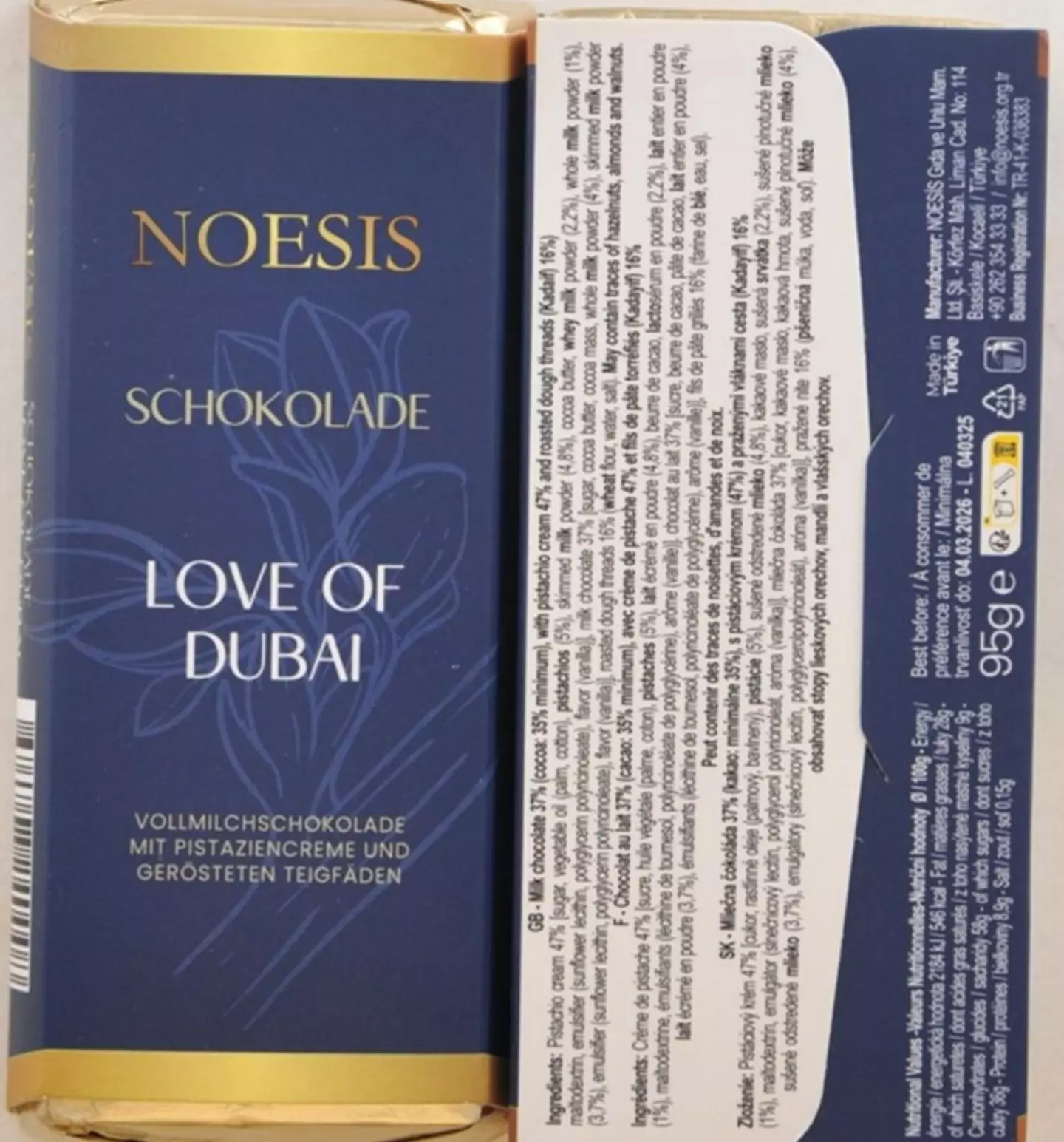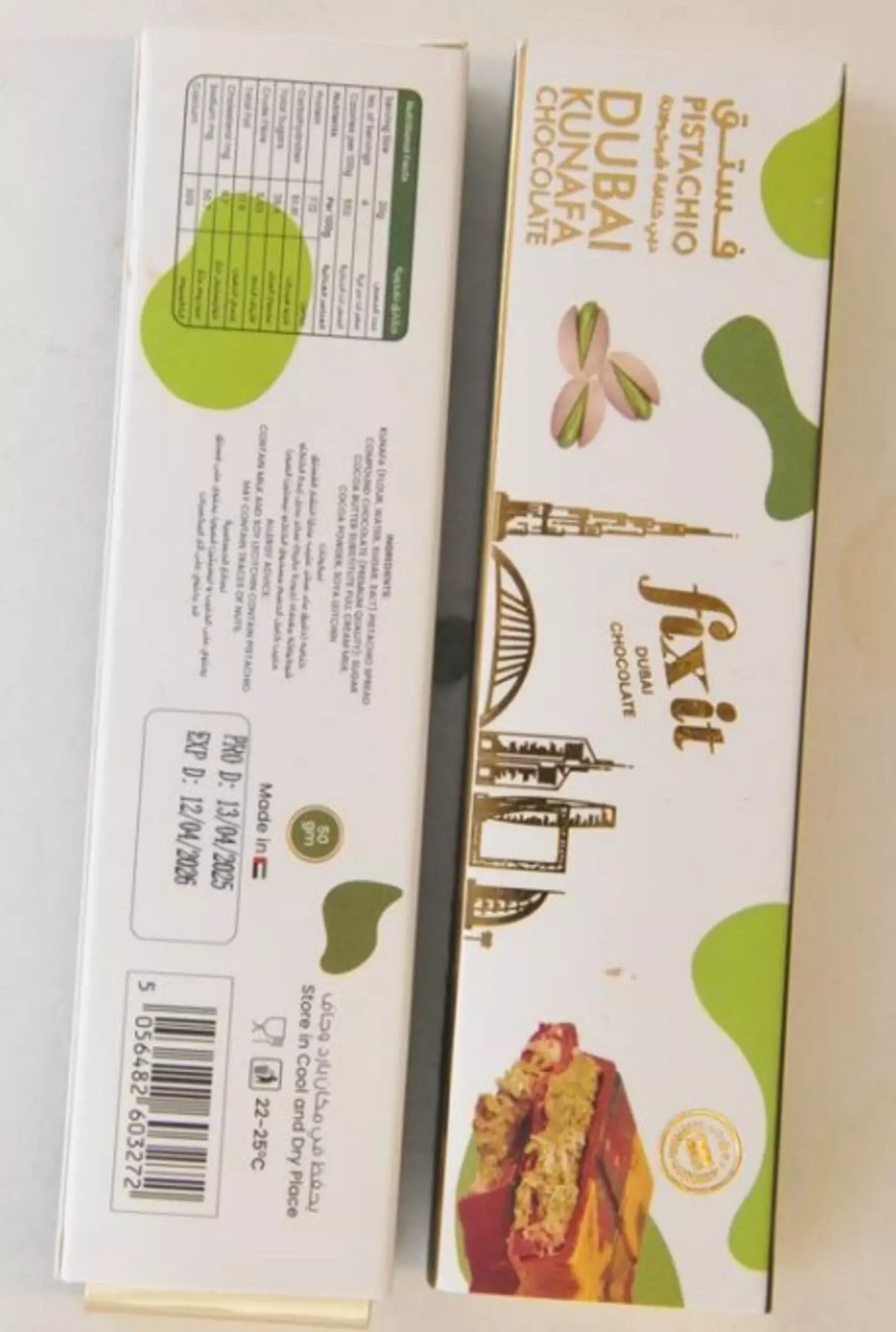
Dubai-style chocolate has taken the world by storm. Along with matcha lattes, Labubus and buccal fat removal, it’s one of the must-have fads of the moment.
If you’re unfamiliar, it’s kind of like a Kinder bar for grown-ups. A pistachio filling subs the white chocolate, while the exterior is made with dark chocolate.
There’s a bit more to it than that, but you get the gist.
The surge in popularity has been followed by an unscrupulous market producing and hawking Dubai-style chocolate products that fail to meet the UK’s stringent standards around food products, particularly where labelled allergens are concerned.
Advert

In the UK, food products must have full ingredients lists provided on the packaging, with allergens highlighted for clarity. Should a product fail to have these allergens highlighted, allergy sufferers’ health is placed at risk.
A nut allergy sufferer, for example, could eat a nut by mistake if it isn’t listed in the product’s ingredients, potentially triggering a fatal anaphylactic reaction.
You may remember Pret a Manger coming under fire for failing to list its products’ allergens in full, resulting in the death of a teenaged girl.
The Food Standards Agency (FSA) has previously warned about the risks posed by Dubai-style products slipping through the net, and now it has upgraded the warning to a recall on several such products.

Both consumers and retailers have been urged to check their stock for the items, with the three in question being:
- Noesis Shokolade Love of Dubai, 95g
- Fit it Dubai Kunafa Chocolate, 50g
- Le Damas Dubai Chocolate Kunafa and Pistachio
These products were distributed by Black Sea Trading Ltd. which the FSA has failed to establish contact with since concerns were first raised.
"People with allergies could experience severe or even fatal reactions if they consume these chocolates without knowing nuts are present," said an FSA spokesperson.
"If there is a problem with a food product, that means it should not be sold, then it might be 'withdrawn' (taken off the shelves) or 'recalled' (when customers are asked to return the product).

"The FSA issues Product Recall Information Notices to let consumers and local authorities know about problems associated with food.
"In some cases, a 'Food Alert for Action' is issued. This provides local authorities with details of specific action to be taken on behalf of consumers."
Customers are advised not to purchase or consume the recalled products. Instead, they should be returned to the retailer from which they were purchased for a full refund.
